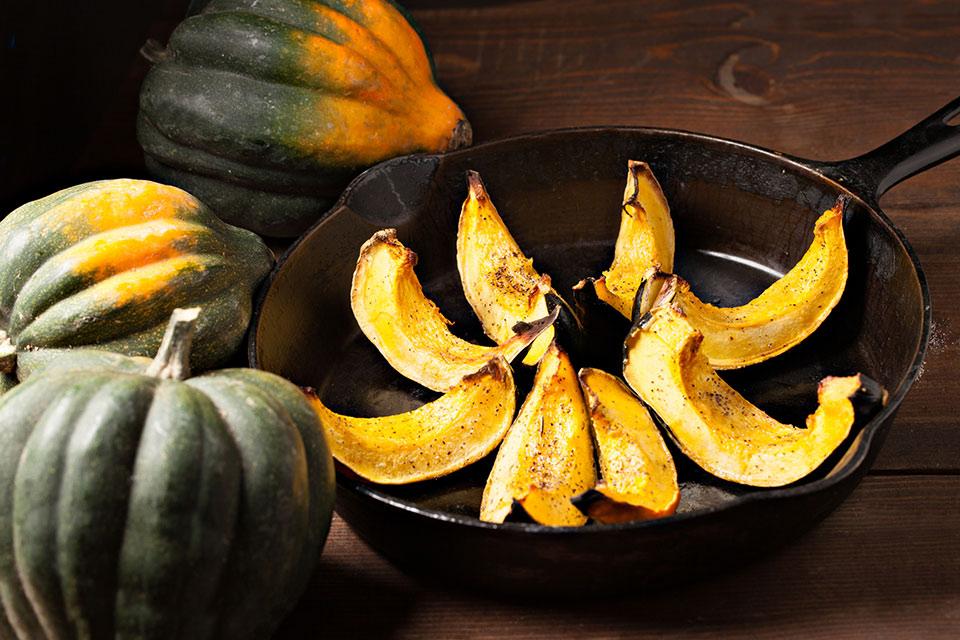Move over broccoli, there’s a new superfood in town. Acorn squash has more carotenoids than any other food. Carotenoids are a powerful antioxidant that help fight inflammation and prevent cell damage. Winter squash is a low-fat food but the fat it does have comes in the form of Omega-3 fatty acids, an important nutrient for brain health!

How to Eat Acorn Squash
Grilled:
Cut the squash in half and scoop out the seeds. Slice the squash in one-inch sections width wise, making small crescents. Brush the crescents with coconut or avocado oil and place on a medium grill for two to three minutes per side. Season with salt and pepper to taste.
Baked:
Cut the squash in half and scoop out the seeds. Brush the cut sides with oil and place face down on a baking sheet in a 400-degree oven. Bake for 30 - 40 minutes or until a fork easily punctures the skin. Scoop out the insides, season with salt and pepper to taste.
Bonus! The seeds can be cleaned and roasted in the oven like pumpkin seeds for a quick and healthy snack!
